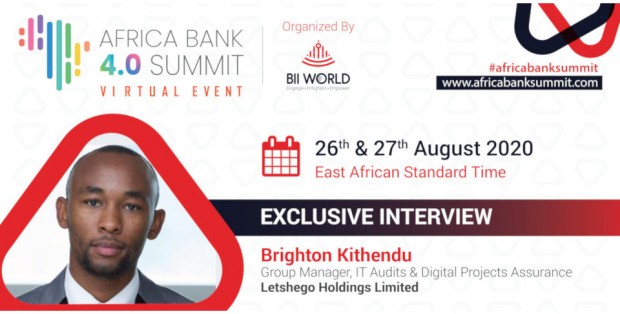What has been your personal takeaway from the experience of the COVID19 crisis in terms of its effect on business operations and re-strategizing the new way forward?
- In times of extreme uncertainty, planning is limited and reacting is insufficient. Businesses that survive crisis are those that are structured in a very agile and nimble way with an adaptive culture.
- Businesses ought to cultivate an organisation-wide innovation culture and intrapreneurship spirit where everyone is considered as an innovation champion and capacitated to look at problems and processes through the lenses of how they can be improved.
- A sustainable business strategy is balanced by enterprise agility and cushioned by effective business continuity management
- Cultivate and budget for innovative experimentations with quick feedback loops and agile iterations- Build>measure> learn*repeat
- Digital Transformation for both back office operations that allow business to operate remotely but also digital channels that allow customers to transact on the go.
According to you what are the emerging technologies or innovations that you think will become crucial in the financial sector, keeping in mind the current global situation?
- Open banking and democratisation of financial sector data
- Co-creation and open innovation
- Customer-centricity and enhanced customer experience (UX, CX, Design Thinking)
- Locking customers by giving solutions to touchpoints across their financial lifestyle
- Data-driven insights and decisions with enabled
How ready is the region in adapting to the change in operations and how are government bodies assisting in the implementation of the changes?
- With African Continental Free Trade Area (AfCTA) already in place since 2019, the market is opened up for more collaborative opportunities that would allow open banking, co-creation and shared regulatory policy frameworks.
- Existence of Regulatory sandboxes like CMA in Kenya allows innovations in fintech that interplay with evolution of supporting policy framework
- US-Kenya FTA being negotiated
- With significant growth of startups and fintechs in the region, two African countries; Tunisia and Senegal have already enacted Startup Acts to provide guidance on how startup business would operate.
AI and Robotics, Blockchain, Data Science, Digital Engagement and CRM, Financial Inclusions – Which area has noted most promising adaptation in terms of innovation and digital integration? Why?
- Facial Recognition technology due to the need to enhance e-KYC and prevent fraud risk.
- Data Science, AI and Deep learning due to the growing need to unearth customer behaviours to provide enhanced customer experience and products those customers actually want.
- Blockchain looks promising especially with globalisation and cybercrime, opening up the need for smart contracts, non-repudiation for digital transaction among others.
How would you think attendees will benefit by attending Africa Bank 4.0 Summit?
- This will be an opportunity to share learnings from different organisations on how the businesses can re-strategize during a crisis and innovate to remain sustainable.
- Covid-19 experience is unprecedented to African industries and this will bring together different players in BSFI to explore collaborative opportunities for co-creation including open banking.
- Networking.


